Middle Tennessee State University is not only helping students excel professionally but tenured faculty as well.
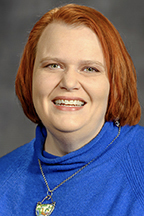
Leadership on Deck Institute, a faculty development opportunity that began at MTSU in 2021, recently celebrated the graduation of its second class. The third session, with a cohort of 11 participants, will kick off in August. The first class hosted 15 participants.
“In higher ed, one of the things we’ve tried to focus on in the last few years is succession planning, making sure we have talent within,” said Dr. Amy Aldridge Sanford, vice provost for academic programs.
“(With LDI) we are creating leaders internally who can take on leadership roles when they become available — people who can be graduate coordinators, program coordinators, who then can be department chairs, school directors, then eventually deans or vice provosts.”
Approximately a dozen tenured faculty are accepted into the program each year. Applicants must be an associate professor or full professor to be considered, and a supervisor also must write a recommendation .
“We’re looking for someone who is showing promise toward being a campus leader,” said Sanford, who took over LDI’s leadership in the spring. “We talk about some pretty in-depth topics. We talk about the budgetary process. We talk about personnel and dealing with difficult people. These are things that people get hung up on and cause them not to be successful in leadership roles.”
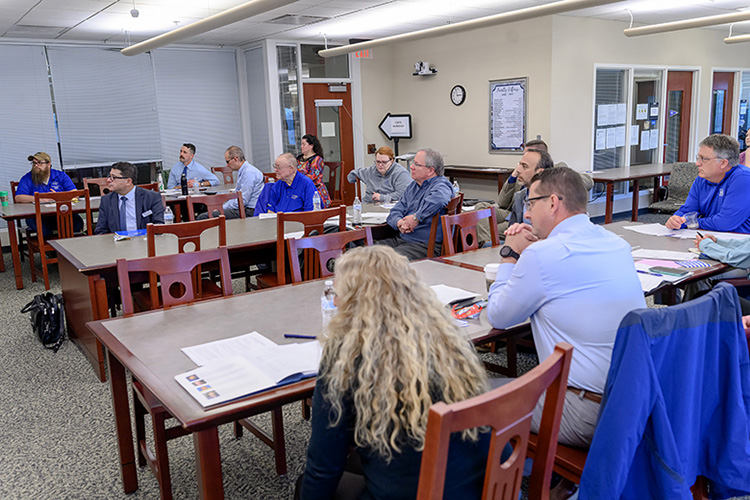
The institute is a big commitment. Participants attend monthly four-hour sessions throughout the academic year, and speakers, panels and conversations discuss topics that run the gamut of university operations.
“This provided me the opportunity to get a view of what goes on in administration,” said Jacob Avila, an associate professor in the School of Concrete and Construction Management. “I think every faculty member should do something like it (to learn) about the broader context of what goes on in the institution and across the board in higher ed.”
Benefits are multifaceted, even for those already in leadership positions.
“The reason I decided to join is to get exposed to how the university operates from all aspects, and learning first-hand from leaders helps you grow professionally,” said associate professor of management Murat Arik, who is director of the Business and Economic Research Center and chairholder of the Jennings and Rebecca Jones Chair of Excellence in Urban and Regional Planning.
Cohorts even have homework. By the end, they all complete a project that can be implemented at the university.
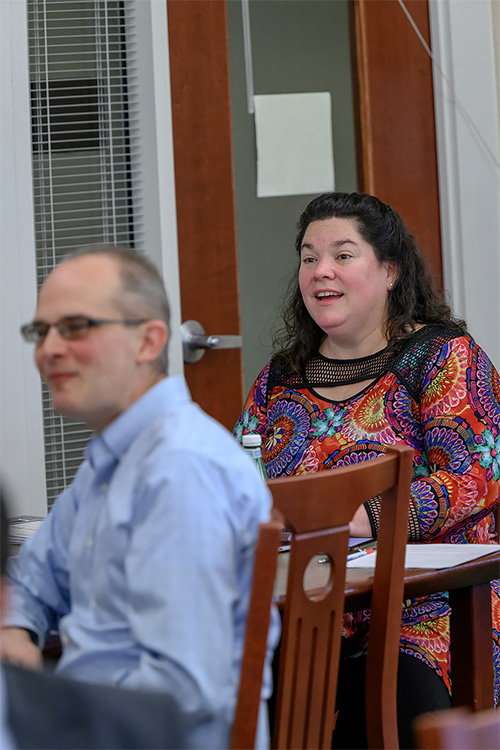
Through LDI, Arik developed an urban and regional planning scholars program that will start in August.
“That initiative itself allows you to put what you’ve learned into action,” he said.
Although the ultimate goal is to train future academic leaders, the course is helpful even if participants decide leadership roles are not for them.
“People go through this, and it really solidifies that they want to be a leader, or they come to the understanding that it’s not what they want to do,” Sanford said.
In addition to the professional development, Avila sad he appreciates the new friendships he garnered through the experience.
“We all had different perspectives, different points of view, different disciplines,” Avila said. “It was a very enriching experience.”
Avila also said he believes LDI enhances skills in the classroom and bolsters the ultimate mission of MTSU:educating and preparing students for their respective careers.
“It’s part of what we need to do to make sure we are taking care of students and providing the best educational opportunities for students,” Avila said. “I think it’s a worthwhile investment.”
For more information about the Leadership on Deck Institute at MTSU, visit www.mtsu.edu/provost/fac_handbook/leadership-on-deck-institute.php.
— Nancy DeGennaro (Nancy.DeGennaro@mtsu.edu)

Incoming LDI Class III (2023-24)
• Christina Cobb — Department of University Studies; True Blue Core project.
• Matthew Duncan — Department of University Studies.
• Rodridgo Gomez — Department of Media Arts.
• Kevin Krahenbuhl — Womack Educational Leadership Department.
• Robin Lee — Womack Educational Leadership Department.
• Lei Miao — Department of Engineering Technology.
• Ann McCullough — Department of World Languages, Literatures and Cultures.
• Eric Oslund — Department of Elementary and Special Education.
• Andrew Owusu — Department of Health and Human Performance.
• Suzanne Sutherland — Department of History.
• Sam Zaza — Department of Information Systems and Analytics.
LDI Class II (2022-23)
• Murat Arik — Department of Management; Business and Economic Research Center.
• Jacob Avila — School of Concrete and Construction Management.
• Jenn Caputo — Department of Health and Human Performance.
• Christopher Dye — School of Music.
• Grant Gardner — Department of Biology.
• Bob Gordon — Department of Media Arts.
• Scott Handy — Department of Chemistry.
• Julie Myatt — Department of English; MT Engage Program.
• Pat Richey — Department of Communication Studies.
• Ben Stickle — Department of Criminal Justice Administration.
• Jennifer Vannatta-Hall — School of Music.
LDI Class I (2021-22)
• Margaret Brooker — Department of Art and Design.
• Keonte C. Coleman — School of Journalism and Strategic Media.
• Claire Cook — Department of Human Sciences.
• Rick Cottle — Department of Human Sciences.
• Katie Foss — School of Journalism and Strategic Media.
• Shannon Harmon — Department of Elementary and Special Education.
• Alexander T. Jackson — Department of Psychology.
• Rebekka King — Department of Philosophy and Religious Studies.
• Darren E. Levin — Department of Theater and Dance.
• Katherine A. Mangione — Department of Elementary and Special Education.
• Kate L. Pantelides — Department of English.
• Andrew R. Polk — Department of History.
• Karen N. Reed — James E. Walker Library User Services.
• Lauren Rudd — Department of Human Sciences.
• Bethany A. Wrye — Department of Health and Human Performance.
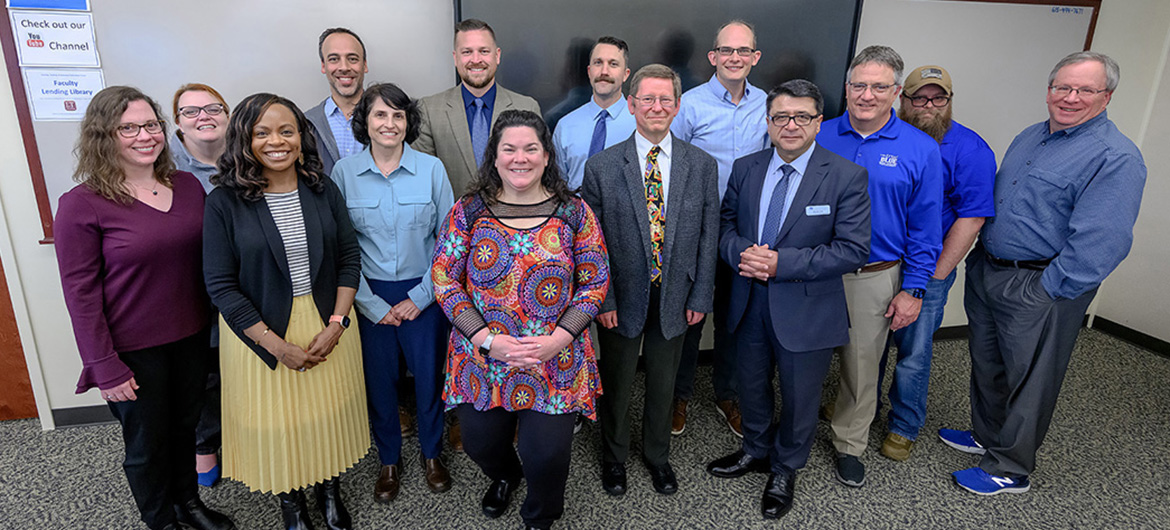

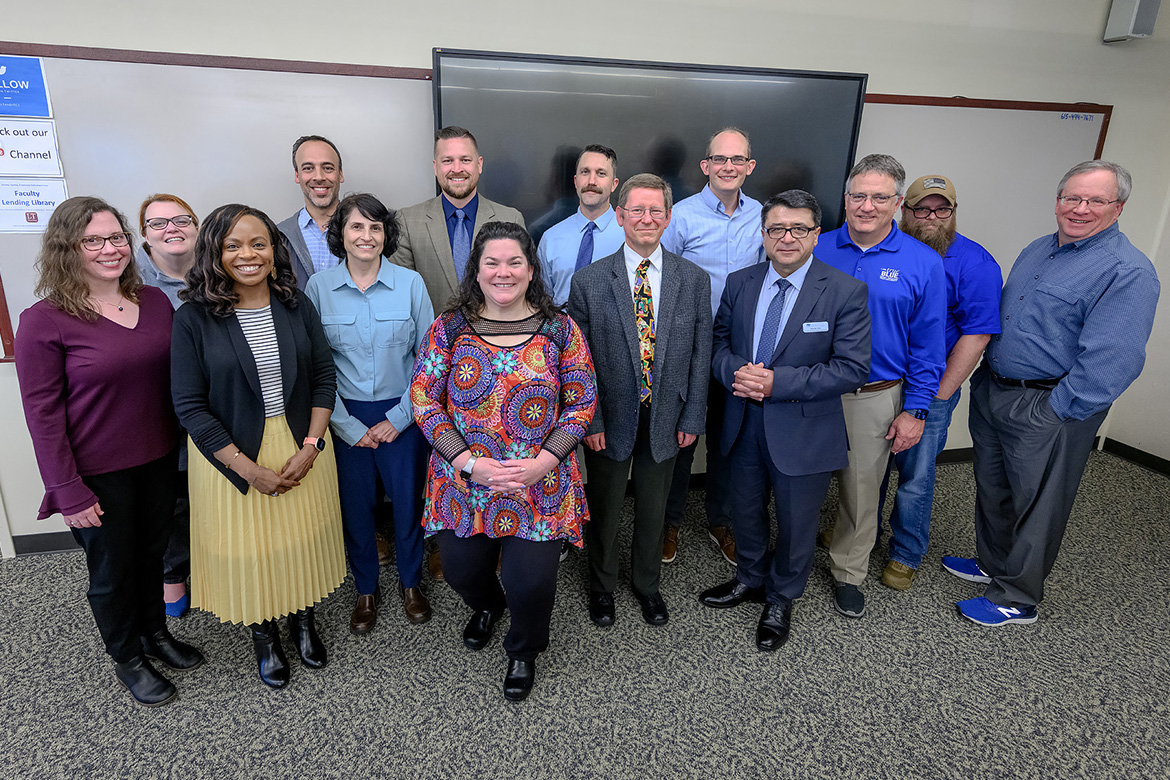
COMMENTS ARE OFF THIS POST